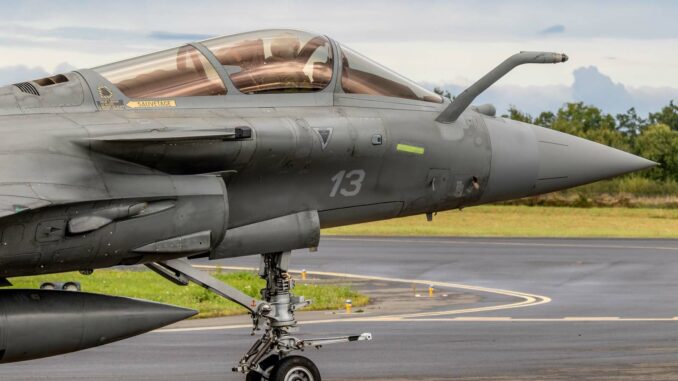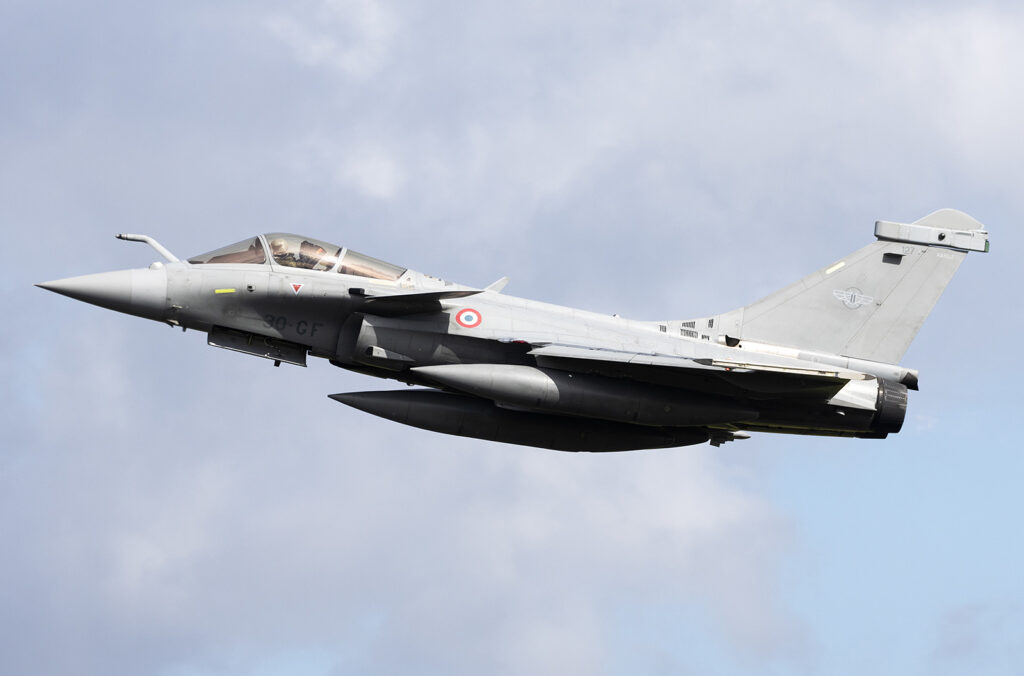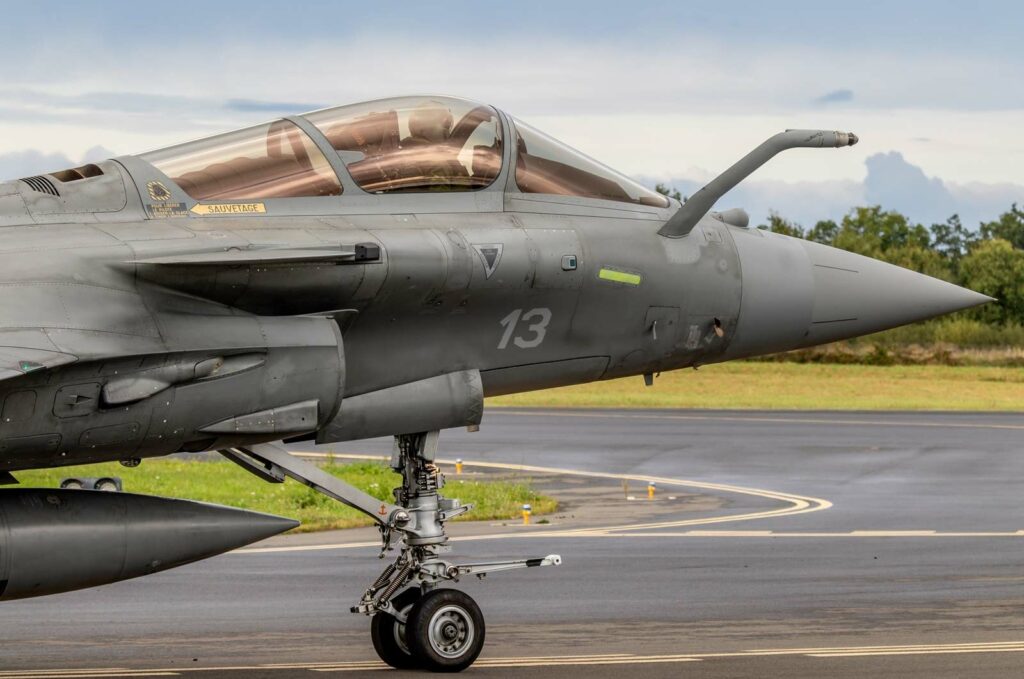
Can Limited Export Markets Challenge Dassault’s Financial Stability?
Assessing the financial and strategic consequences for Dassault Aviation if Rafale fighter jet exports are confined to France.
Dassault Aviation, a renowned French aerospace company, has gained recognition through its Rafale, a multirole fighter jet with advanced capabilities. However, the success of the Rafale is not only measured by its performance but by its ability to secure international orders. A scenario where Dassault’s sales are restricted to France raises concerns on multiple fronts. This article will explore the financial implications and strategic challenges of such a limitation, considering Dassault’s current dependency on exports, its ongoing commitments, and the broader geopolitical impact.

Financial Ramifications of Restricted Rafale Exports
Dassault Aviation’s financial position heavily depends on its ability to secure deals outside France. While the French government has placed orders for the Rafale, these alone are insufficient to sustain the program’s long-term profitability. For context, the company’s 2024 order backlog included 223 Rafale jets, with 159 destined for foreign buyers. With a price per unit exceeding €100 million, foreign orders represent a significant share of revenues.
Decline in Revenue Streams
Should export opportunities dwindle, Dassault risks facing long-term revenue contraction. The company’s adjusted net sales already climbed to €2.54 billion for the first half of 2024, driven partly by six Rafale deliveries within France and continued international contracts. Losing foreign clients would shrink order volumes, impacting cash flow and possibly inflating production costs due to reduced economies of scale.
Operational and Workforce Considerations
Dassault employs thousands across its facilities, and a reduction in export-driven production could jeopardize jobs and operations. Supporting subcontractors—especially smaller suppliers—might become untenable, leading to industry-wide disruptions. France’s defence export prowess, which places the country as the second-highest arms exporter globally, underpins Dassault’s contribution; halting international Rafale deals could ripple across its supply chain.
Strategic Concerns Over Lost Export Markets
Restricted exports would pose significant challenges to Dassault Aviation’s strategic positioning in the global arms market. Since its development, Rafale has managed to secure contracts in countries such as Qatar, Egypt, and India, contributing not only to France’s stature as a defense supplier but also to its geopolitical influence.
Loss of Competitive Edge
Ceasing international Rafale sales would likely handicap Dassault’s competitive edge. The global fighter jet market includes formidable rivals like the U.S. F-16 and Sweden’s JAS 39 Gripen. Without global bidding opportunities, Dassault risks ceding influence to competitors who continuously enhance their export portfolios. Over the years, critics have noted Rafale’s high acquisition cost as a detractor for budget-sensitive buyers. The absence of international demand would exacerbate such pricing criticisms and diminish perceived value.
Impact on Innovation
Export opportunities facilitate technology development and cost-sharing. Many features introduced in recent Rafale iterations, including the F5 standard under development, arose partly to meet specific export client needs. Restricting sales to France alone would shift the research and development burden back onto French taxpayers, potentially delaying or canceling future upgrades. For example, functionalities such as the integration of UAV capability in the Rafale have been linked to export-led innovations.
Geopolitical Implications
The strategic ramifications go beyond Dassault’s finances. The Rafale has become a diplomatic tool for France, with major deals signifying deeper bilateral ties. India’s €7 billion purchase in 2016 is part of broader defense collaboration. Without such agreements, France might struggle to maintain these alliances, impacting its geopolitical standing.

Practical Considerations for Mitigating Export Losses
To partially address potential financial risks, Dassault could explore several pragmatic approaches, such as diversifying its portfolio and tapping adjacent markets.
Expanding Civil Aviation Portfolio
Dassault’s commercial jets, the Falcon series, constitute a smaller yet significant part of its operations. Scaling Falcon production may help offset losses tied to Rafale exports. However, civil aviation margins typically lag behind defense contracts, limiting their compensatory impact.
Collaboration on European Defense Projects
Dassault could focus efforts on multinational defense initiatives like the Future Combat Air System (FCAS). Partnerships with Germany and Spain on the next generation of combat aircraft could reduce reliance on unilateral Rafale sales. Despite theoretical timelines targeting 2026, such collaborations could safeguard its industrial base amid export limitations.
Strengthening Domestic Market Demand
Though France is already a Rafale buyer, advocating increased governmental investment in domestic defense could mitigate some risks. France’s strategic shift toward “war economy” principles in response to heightened global tensions may offer Dassault an avenue to lobby for enhanced commitments to Rafale acquisitions.
Lessons from Previous Export Challenges
Dassault’s historical struggles in securing Rafale export contracts underscore why reliance on a domestic client base is untenable. By 2024, only 84 Rafale units had been exported in contrast to the vast inventory of U.S. fighter aircraft in international fleets. Factors like cost, geopolitical dynamics, and prior bidding losses hindered its global prospects. Future contracts might face similar obstacles unless strategic reforms or partnerships are advanced promptly.
Final Analysis
Restricting Rafale sales to France alone would impose financial and strategic hardships on Dassault Aviation. The absence of diverse markets could shrink revenues, impair production efficiency, stifle innovation, and diminish France’s global defense footprint. Short-term recovery strategies such as bolstering Falcon sales or accelerating European partnerships may alleviate some pressures but are unlikely to fully substitute lost export contracts. For Dassault, maintaining Rafale’s relevance on the international stage is not merely advantageous; it’s essential for preserving its viability as a leading defensive aerospace manufacturer.
War Wings Daily is an independant magazine.